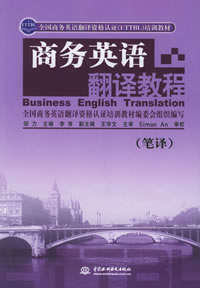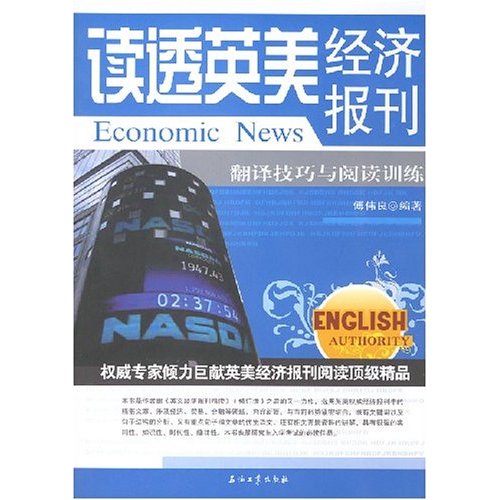专业术语翻译的综合方法:第二部分 An Integrated Approach to the Translation of Special Terms (II)
作者:古龙 2009-07-04




语际翻译公司 转载请注明https://www.scientrans.com
∗本栏目部分文章内容来自互联网,部分已经过本站编辑和整理,如有版权事宜请联系Email/MSN jesczhao@hotmail.com
If a producer wishes to have his products certified as organic food, they must conform to the standards for the production of organic food and become accredited by an authoritative institution. For example, products in Australia must adhere to the Organic Standard of National Association for Sustainable Agriculture, Australia (abbreviated as NASAA) to be certified as organic food; in the United Kingdom, they must be accredited by the Organic Farmers and Growers Ltd. (OF&G) authorized by DEFRA, UK; and in the United States, they should conform to the National Organic Program set up by the US Department of Agriculture. Now these standards concerning organic food are recognized among most countries of Europe and the Americas. Organic food is closely related to organic farming, which was developed in industrialized countries as a response to the damage brought by the industrialized agriculture. In 1972, International Federation of Organic Agriculture Movements (IFOAM) was founded in Versailles, France with the aim to exchange practices and standards of organic farming among different countries.
Therefore, the two terms have their respective origins and their referent is fixed in their own linguistic contexts. If their standards are the same, it can be argued that the two terms, lüse shipin and organic food, are equivalent terms and they can be mutually substituted in different languages. However, they are not the same. China has set up two general standards for lüse shipin, i.e. Standard A and Standard AA. According to the research of Xie Yongping from Nanjing Agricultural University, "Lüse shipin of Standard AA is organic food, but not vice versa. Only those organic foods whose productive environment, operations in the production, product quality and packaging all conform to the Standard AA of lüse shipin can be certified as lüse shipin of Standard AA. In other words, organic food is the quasi-lüse shipin of Standard AA" (1998: 7). Standard A of lüse shipin is less strict than that for organic food. Thus, the two concepts are related but different. Their relationship could be shown in Figure 2:
Therefore, from a terminologist's perspective, Harman's view is incorrect. Organic food does not correspond to lüse shipin, and their referents are not the same, which violates the terminological principle that name and concept should be the same.
As for the translation of the term green food provided by the New Age Chinese-English Dictionary, we have carried out a corpus-based research to see its usage in English as well as the reception of youji shipin (organic food) in the Chinese context, and then evaluate this translation.
3. A corpus-based research of the reception of the terms
a) A corpus research of terms in the SL
By investigating the usage of some words in the modern Chinese corpora, translators would obtain some unexpected hints in the process of translation. As the case study is concerned, we examined the frequency of lüse shipin and its similar term youji shipin (organic food) in Modern Chinese. For this purpose, the online queries of the Modern Chinese Corpus managed by the Center for Studies of Chinese Language and Linguistics, Beijing University (abbreviated as CSCLL in this paper)3 and the Modern Chinese Corpus managed by the Institute of Applied Linguistics, Ministry of Education (abbreviated as IALME in this paper)4were made use of. The search results are as follows:
Table 1 The Frequency of the terms Lüse Shipin and Youji Shipin
lüse shipin (green food) youji shipin (organic food)
CSCLL 4.18 per MC (481) 0.14 per MC (16)
IALME 0.8 per MC (16)5
0
* Notes:
1. MC means million characters.
2. The number in the brackets is the total frequency in each corpus.
3. In IALME, lüse shipin is considered as one word with the attached tag, n.
From Table 1, it can be seen that lüse shipin is a familiar term for the Chinese people, while youji shipin is a new term with an obviously lower frequency. In CSCLL, its frequency is as only slightly over 3% as that of lüse s
- 评论
- seme:文章内容文章内容文章内容文章内容文章内容文章内容文章内容文章内容文章内容 章内容文章内容文章内容文章内容文章内容
- seme:文章内容文章内容文章内容文章内容文章内容文章内容文章内容文章内容文章内容 章内容文章内容文章内容文章内容文章内容

- 科技术语翻译技巧
2009-6-6 23:59:54 - 随着社会的进步和科技的发展,新的发明创造不断涌现,随之也就出现了描述这些事物的新术语。在科技英语翻译中,我们常常碰到如何把这类术语译成适当的汉语的问题。通常,有以下约定俗成的...
- 专业术语翻译的综合方法:第二部分 An In…
2009-6-10 12:49:34 - If a producer wishes to have his products certified as organic food, they must conform t...
期刊征稿
- 第四届IEEE生物信息与生…
2009-6-30 19:42:01 - 基本信息 主办单位: 四川大学,IEEE生物医学工程协会(EMBS) 承办单位 开始日期 2010/06/18 结束日期 截稿日期 2009/1...
- 第九届全国光电技术学术…
2009-6-30 19:35:58 - 基本信息主办单位: 中国宇航学会光电技术专业委员会承办单位 开始日期 2009/11/01结束日期 截稿日期 2009...
















